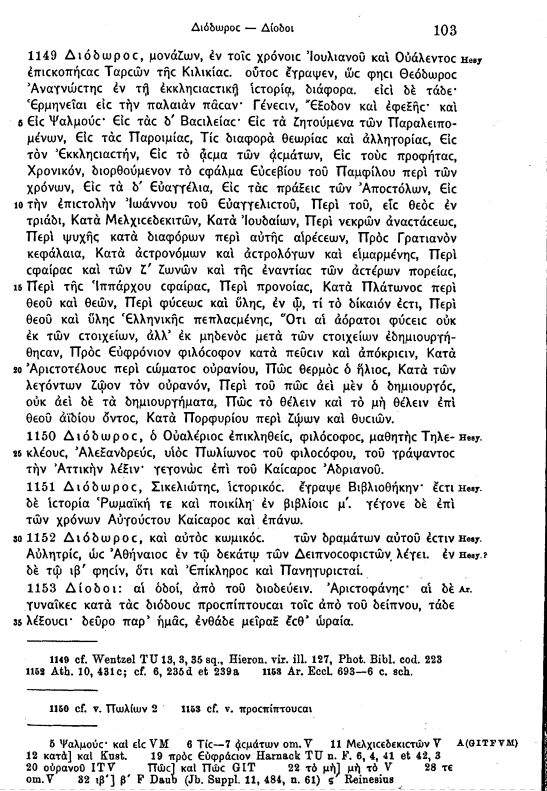Steven Avery
Administrator
This will be streamlined for posting later

 www.roger-pearse.com
www.roger-pearse.com

1 John 5:7 in the fourth century? Theodore, Diodorus, the Suda, and Byzantine punctuation
From 1 John chapter 5 (KJV): 6 This is he that came by water and blood, even Jesus Christ; not by water only, but by water and blood. And it is the Spirit that beareth witness, because the Spirit i…
 www.roger-pearse.com
www.roger-pearse.com
On the Disputation, and authorship and date.
=========
Above I noted that Charles Forster makes a case that the Disputation is in the style of Athanasius.
A New Plea for the Authenticity of the Text of the Three Heavenly Witness -
p. 51-63 Disputation really starts on 59 and style starts at p. 61
Afaik, nobody has answered this position of Forster, and this could indicate that the original source of sections was in fact Athanasius, even if compiled later, and even with added parts.
=========
Annette von Stockhausen in her 2010 paper, mentioned by Roger above:
Die pseud-athanasianische Disputatio contra Arium. Eine Auseinandersetzung mit »arianischer« Theologie in Dialogform (2010)
Intro page
leads to text fileDie pseud-athanasianische Disputatio contra Arium. Eine Auseinandersetzung mit »arianischer« Theologie in Dialogform
Untersuchung der unter dem Namen des Athanasius von Alexandrien überlieferten Disputatio contra Ariumopus4.kobv.de
book online

Von Arius zum Athanasianum
Der Band versammelt Einzeluntersuchungen zu Pseud-Athanasiana, der Rezeption der Werke des Athanasius von Alexandrien in lateinischer und armenischer Sprache, zu ausgewählten Dokumenten aus dem arianischen Streit und zur Geschichte der Athanasius Werke, die im Kontext der Edition der Athanasius...books.google.com
Google translate does reasonably well with German.
First, Annette gives an interesting Montfaucon warning, which can have multiple applications:
==========
"Denn das Verdikt Montfaucons, daß ein unter dem Namen des Athanasius überlieferter Text unecht ist, hat in den meisten Fällen dazu geführt, daß diese überhaupt nicht mehr herangezogen, übersetzt oder untersucht wurden"
"For the assertion of Montfaucon that a text transmitted under the name of Athanasius is fake, has in most cases led to their being no longer used, translated, or examined,"
=========
As to the Disputation, she writes:
"As can be seen in this list, the Disputatio Contra Arium is not at the very beginning of the collection. But as it comes to stand in accordance with the writings of Contra Gentes and De Incarnatione (which does not deal with the Arian question), it functions as an introduction to the "anti-Arian" writings of Athanasius, which are summarized in this collection Dispntatio Contra Arianos, in that it reproduces a discussion between Athanasius and Arius at the Synod of Nicaea itself, which binds the writings of Athanasius to be arranged thematically and chronologically according to the Synod of Nicaea, and illuminates the background of the dispute."
She does not consider the text to be written by Athanasius:
I'm quite sure about it not being written by Athanasius (the style is too different; the creed in Disp. 5 is not fitting to Athanasius; the whole topic of a disputation between Athanasius and Arius in Nicaea to apocryphic, cf. the problematic passages p. 148 sqq. – also regarding the difference between the mentioning of Arius in the title and the person Athanasius is discussing with being one of his followers). My idea was that it's a writing probably meant and composed as an introductory text of an early collection of works of Athanasius (ep.Aeg.Lib. and Ar I-III) that was maybe compiled in Alexandria. It's more 5th century than 4th century (but I have no "real" indications for that, I must admit) and I tentatively proposed the young Cyrill of Alexandria as author (also: no hard evidence, but the feeling that Cyrill and Alexandria could be fitting for the text). But for sure it's pseudo-athanasian... correspondence, 2019
So she has it as a 300s or 400s Greek writing, and the proposed author is considered today a top early church writer. This Disputation may in fact bring forward writings from Athanasius (especially if Charles Forster is correct about the style of the sections he highlights) and it has a solid heavenly witnesses reference.
So clearly it acts as one of the refutations for the various "no-Greek-evidence" assertions, along with the Synopsis of Scripture.
Those assertions also fall on other evidences, such as Cyprian's knowledge of Greek when he references the verse from his Latin Bible, and Jerome's referencing Greek and Latin manuscripts in the Vulgate Prologue. Also of special note is the Eusebius comment to Marcellum. And the grammatical "fix" in Greek that is theorized to come through a Latin back-translation! And a number of other evidences, taking us afield from this study.
More Athanasius info, utilizing the studies here, at:
Pure Bible Forum
Athanasius - review of heavenly witnesses references
Athanasius - review of heavenly witnesses references
This would be a good section to include ALL the various Athansius (and supposed Ps-Athanasius, including the Disputation with Arius at Arius) heavenly witnesses reference points. Three historical scholars stand out: Montfaucon William Cave Du Pin (with some checking of Simon, Newton...www.purebibleforum.com
Where there is an ongoing attempt to collate and share the evidences supporting Greek usage of the heavenly witnesses in general.
And a big thanks to Roger for hosting and contributing to these studies.


